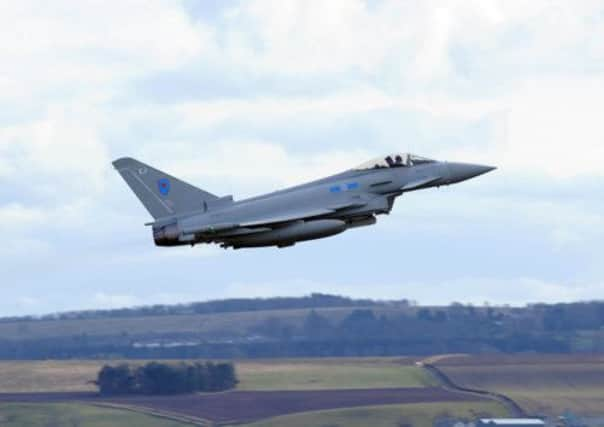Colin Fleming: Scots strengths to lead defence plan


But, though the Scotland Institute report is a worthwhile contribution to the independence debate, its focus is unduly negative. Yes, there are challenges. But there are opportunities too – opportunities to craft a Scottish Defence Policy (SDP) and a Scottish Defence Force (SDF) that match the aspirations and priorities of a small independent nation.
Too often the report falls into warnings over what might go wrong: a cyber-security weak spot, a haven for terrorist organisations, a weak link in the security of the British Isles. These kinds of risk are not Scotland-specific. Indeed there is a higher incidence of terrorist activity in other parts of the UK than in Scotland.
Advertisement
Hide AdAdvertisement
Hide AdAnd there are experts, Professor William Walker of St Andrews University among them, who believe Scotland would become more – not less - secure under independence.
Challenges such as the removal of Trident from the Clyde, cyber-crime and the transition from the UK military structure to a newly formed SDF can be overcome. But the report notes correctly that there must be more openness from Westminster about Scotland’s share of defence assets.
Scotland has a strong negotiating hand. It will want fast jets and frigates, not nuclear submarines and destroyers. If London wishes to keep these assets then Scotland will have billions to spend on new equipment.
The suggestion that “separating” the current UK forces is illogical misunderstands that an SDF would play a different role to current UK forces. And the idea that it is too difficult to decouple Scottish from rUK forces is undermined by the MoD, which frequently cuts large sections from the UK’s defence architecture without much problem.
The theory that Scotland is protected from a dangerous world through the high-tech and efficient capabilities of the UK armed forces neglects the fact that the British military establishment does not have anything near the capacity it had in the past. This is further undermined by the financial mismanagement of the MoD, ranging from the Queen Elizabeth aircraft carrier and the Typhoon project to the current debacle surrounding the acquisition of the Joint Strike Fighter – all of which have come at extraordinary cost to taxpayers.
These programmes have been used to highlight the dependency on the Scottish defence industry, but the argument lacks credibility. First, the suggestion that Scottish jobs will be lost on the Clyde is destroyed by the MoD’s own agreement with BAE Systems, which will see the 5,000 workforce slashed to 1,500. Second, Scotland will be required to build her own vessels for the Scottish Navy.
So what can Scotland offer? The report insists that Scotland needs the UK to guarantee full Nato security. But again this misses the point. Until independence is achieved, Scotland does not have a full international voice and has no control over whether the country goes to war.
And Scotland can build on specific strengths attractive to potential partners. This is what other small states such as Norway and Denmark have done.
Advertisement
Hide AdAdvertisement
Hide AdAn independent Scotland represents an exciting opportunity to build niche capabilities, unburdened by armed forces that were structured during the Cold War. There is no reason why Scotland cannot contribute to Nato’s maritime patrol, anti-piracy or border security, for example.
Scotland’s key advantage would be its ability to fill capability gaps in the North-East Atlantic and High North – capacities that were lost in the Strategic Defence and Security Review of 2010.
It is unfortunate that last week’s report didn’t address Scotland’s geo-strategic location in more depth. This makes Scotland the lynchpin of Nato’s near-neighbourhood operations – something that will play a key role in our membership. As the US pivots its strategic interests away from Europe, the ability to interface with regional allies would be a very strong bargaining chip.
The Scotland Institute report is a platform on which to start the debate on the defence policy of an independent Scotland. But the Scottish public needs a balanced and critical assessment of an independent defence policy. It must be taken seriously.
• Colin Fleming is a research fellow at the Department of Politics and International Relations, Edinburgh University